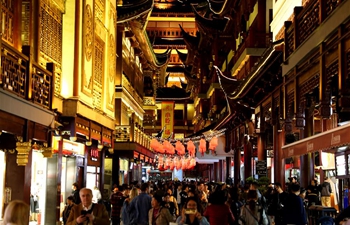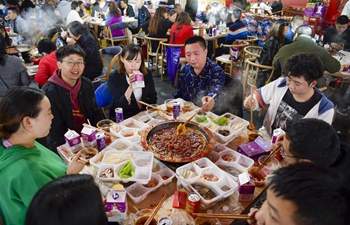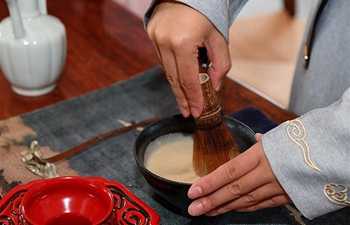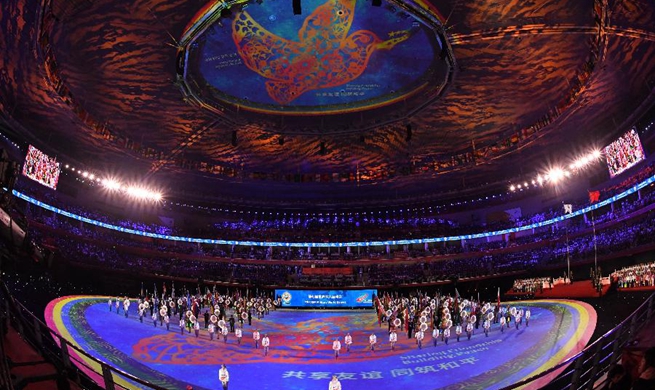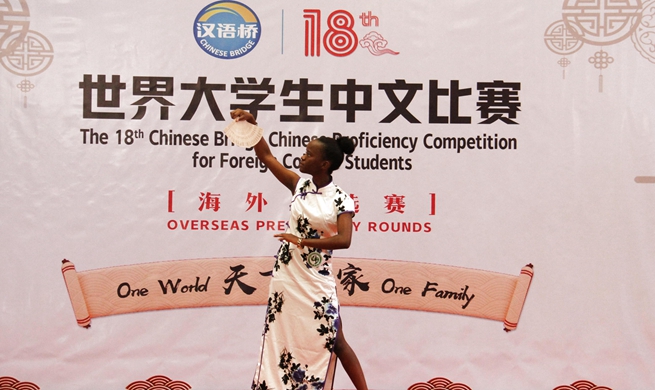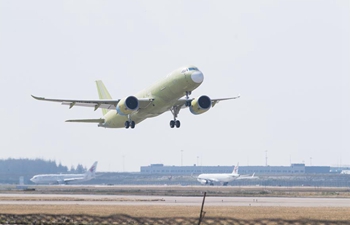KUALA LUMPUR, Oct. 28 (Xinhua) -- Malaysia's agricultural sector received a boost in June, after the country started shipping whole frozen durian to China.
With the upgrade protocol of the free trade area between China and the Association of Southeast Asian Nations (ASEAN), Malaysian officials are confident that Malaysia will have greater access to the Chinese market.
Trade between Malaysia and China is set for a further growth with the upgrading protocol of China-ASEAN Free Trade Area (CAFTA), especially in agricultural products, predicted Malaysian Agriculture and Agro-based Minister Salahuddin Ayub.
Malaysia welcomed every effort to smoothen trade and increase exports of Malaysian agricultural products from local farmers to Chinese consumers, benefiting both sides in a win-win situation, Salahuddin told Xinhua recently.
"Of course Malaysia welcomes efforts to smoothen agricultural exports to China and other markets. In fact, our exports to China with regards to tropical fruits such as durian have increased since whole fruits were allowed in," he said.
"With this upgrade, it is hoped that a whole range of Malaysian agricultural products will find their way to China's consumers, benefiting those in the Malaysian agricultural sector."
Salahuddin pointed to his recent trip to Wuhan, capital of central China's Hubei Province, where he learned first-hand of the huge popularity of Malaysian fruits in the country.
"During my visit to Wuhan, China in promoting the Musang King durian and in dialogue with our industry players, we saw light at the end of the tunnel that our tropical fruits are of great interest in China as well as other countries that receive our products," he said.
He added that strong trade bonds with China would not only boost Malaysia's income but also create jobs in the country.
In June, China allowed whole durian fruits from Malaysia for import. Before that, only pulp, paste and processed durian products could be sent to China. The new move further boosted the confidence of durian plantation in Malaysia, which has seen the total durian production rise to 341,000 metric tons in 2018 from 211,000 tons in 2017.
Malaysian government's special envoy to China Tan Kok Wai said, "Malaysia greatly appreciates any effort to facilitate international trade. This is absolutely a positive development as ASEAN as a whole has outgrown the United States to become China's second biggest trading partner and this upgrade is proof of that."
Durian exports to China are expected to contribute nearly 500 million ringgit (120 million U.S. dollars) to the nation's total export value annually.
Besides durian, the Malaysian government is also expecting to boost exports to China other goods, including palm oil, petrochemical products, manufactured goods and agricultural products.
The China-ASEAN Free Trade Area upgrade protocol is the outcome of the China-ASEAN Free Trade Area upgrade negotiation. The protocol was officially signed on Nov. 22, 2015.
Taking agricultural products as an example, the preferential policies of the free trade area have enabled tropical fruits such as mangosteen and durian in ASEAN countries to enter the Chinese market, and also let China's temperate fruits be fully rolled out in supermarkets in ASEAN countries.





